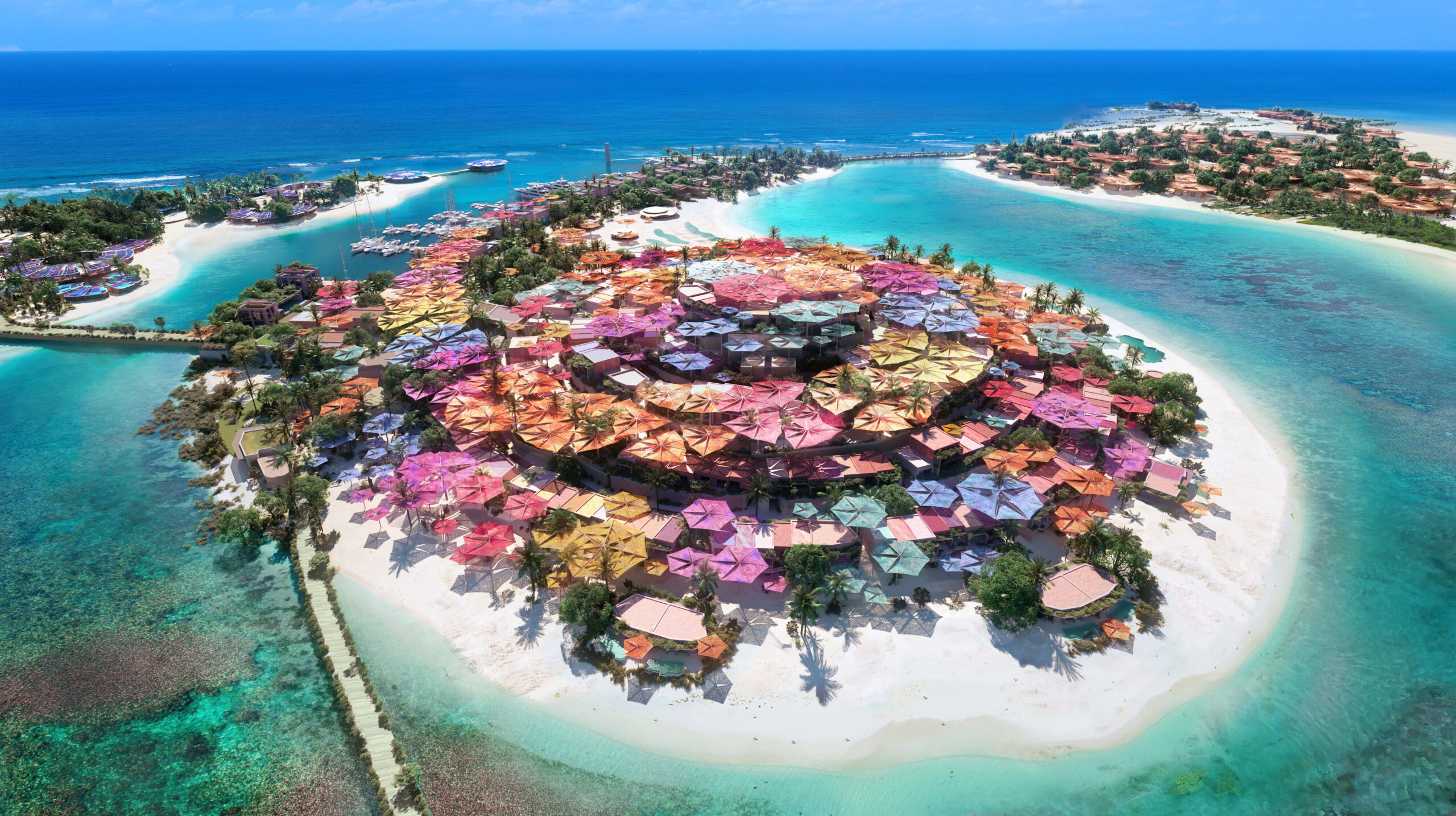Red Sea Global (RSG), the developer behind two of the world’s most ambitious regenerative tourism destinations, The Red Sea and Amaala, aims to consistently be on the forefront of environmentally sustainable practices.
In line with that vision, RSG has announced the completion of installation of solar farms for phase one of The Red Sea destination. More than 750,000 photovoltaic panels have been installed, ensuring the first 16 hotels as well as retail and entertainment venues plus all supporting infrastructure will be powered by renewables.
John Pagano, CEO of Red Sea Global, said: “From the very beginning, we promised to do things differently and building the largest destination in the world powered solely by renewables was a key part of that. This is a milestone moment as we complete the five solar farms needed for phase one of The Red Sea, ensuring our vision for a destination powered by sunlight day and night is now that step closer to reality.”
RSG is also building the world’s largest battery storage facility at 1,200 MWh, ensuring the destination has no need to connect to the national grid and can rely on its own, solar-generated power supply. In line with the company’s commitment to sustainability and regeneration, The Red Sea and Amaala are dedicated to realizing the goals of Saudi Vision 2030 by offering guests a multitude of experiences driven by renewable energy.
In another major achievement, RSG has successfully developed its first mangrove nursery, a project which forms part of its aim to transplant 50 million mangrove trees by 2030. The initiative closely aligns with the national objectives of the Saudi Green Initiative and RSG’s commitment to conserving and revitalising the Kingdom’s Red Sea Coast.
“The conservation and establishment of a sustainable mangrove ecosystem is a key part of our commitment to protect and enhance the natural environment of our destination,” said Raed Albasseet, Group Chief Environment and Sustainability Officer at Red Sea Global. “Mangrove trees are among the most efficient plants for carbon sequestration, with the capacity to absorb 5-10 times more carbon than other plants. As such, the successful cultivation of seedlings forms a central pillar in our ambition to achieve a 30% net conservation benefit across our destinations.”
Established in partnership with the National Center for Vegetation Cover (NCVC), the nursery has successfully cultivated 150,000 seedlings to date, with the goal to grow a total of 500,000 seedlings. These seedlings will then be transplanted across the Red Sea projects.
The establishment of the mangrove nursery is the latest initiative launched by RSG to protect and enhance key habitats crucial to biodiversity. Previous projects include the first-ever successful transplantation of native Doum Palm Trees, achieved earlier this year, and the establishment of pioneering floating coral nurseries to help replenish the region’s coral reefs. The group also regularly conduct environmental surveys of wildlife ecosystems to track impacts and improvements, to optimize its approach and ensure it reaches its regenerative goals, including a largescale Baseline Survey effort for which results were shared last year.
In addition, RSG releases an annual sustainability report as part of its commitment to transparency and sharing lessons learned with the world.
RSG’s flagship project, The Red Sea, is on track to welcome its first guests in 2023, when the international airport and the first hotels will open. Amaala will be open to visitors in 2025.
Category:
News and Updates
Contact
Our Address
Delhi-110092
Email Us
richa.rjassociates@gmail.com
Call Us
011 35587932














